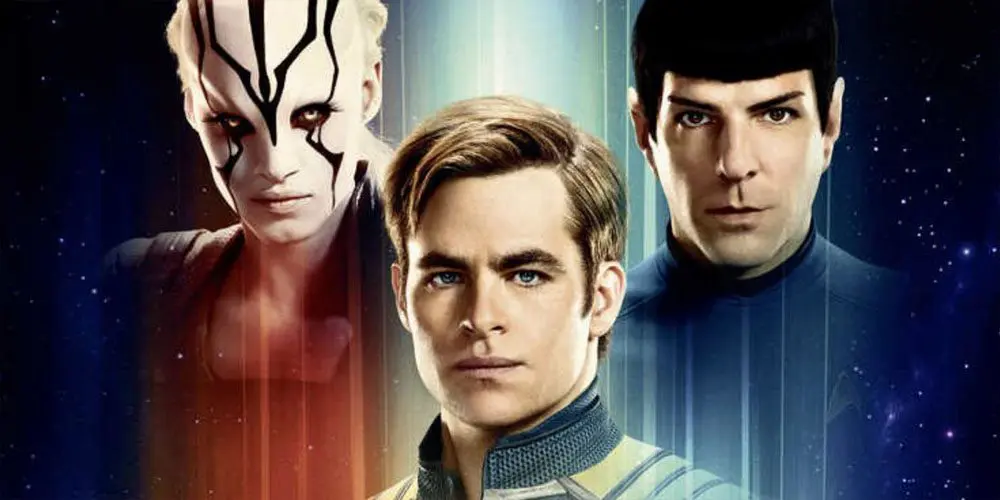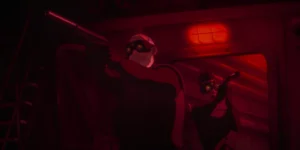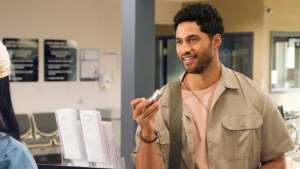I have always been impressed with J.J. Abrams’ work since the day I came across his storytelling in Lost. I am not claiming he is a modern day industry genius, but there is something he manages to do in his work that provides such absorbing character development within the narrative core. Apart of me wanted to leave the Star Trek universe alone when the first modern instalment was released in 2009, because I was never agog in the original Star Trek material. What J.J. Abrams has accomplished with Star Trek is captivating, as he has managed to maintain a fan base and get new followers involved in the project. I was a little saddened to hear that he was not going to direct the third in the series… so does it impress?
There is no time to relax into your seat with Star Trek Beyond. The film throws you in immediately with Captain Kirk trying to humorously solve diplomatic peace arrangements on an unknown planet. The USS Enterprise crew continue to explore in unchartered space but unbeknown to them they come across a ruthless enemy, one that they have not faced before on their long-haul mission, that tests the strength of the Federation. In a nutshell that is the story you are faced with in Beyond.
The crew’s original mission is for a long period and the one described to you in Into Darkness. The film provides a narrator monologue overview by Captain Kirk of how the test of time has had a concerning impact on the crew’s morale. The monologue provides a perceptive introduction to the story because it allows its predecessor to merge with Beyond without the need of explaining what happened in between with countless of scenes. The question the captain raises is, “The farther out we go, the more I find myself wondering what it is we are trying to accomplish. But if the universe is truly endless, then are we not striving for something forever out of reach?” This quote provides a damning realisation that there is no end goal for these characters, and you sense that this film in a latent way is testing if the crew’s resolve is broken. As for narrative terms, you could argue the irony surrounding this quote; if the mission is endless than how long can the Star Trek narrative last in media form?
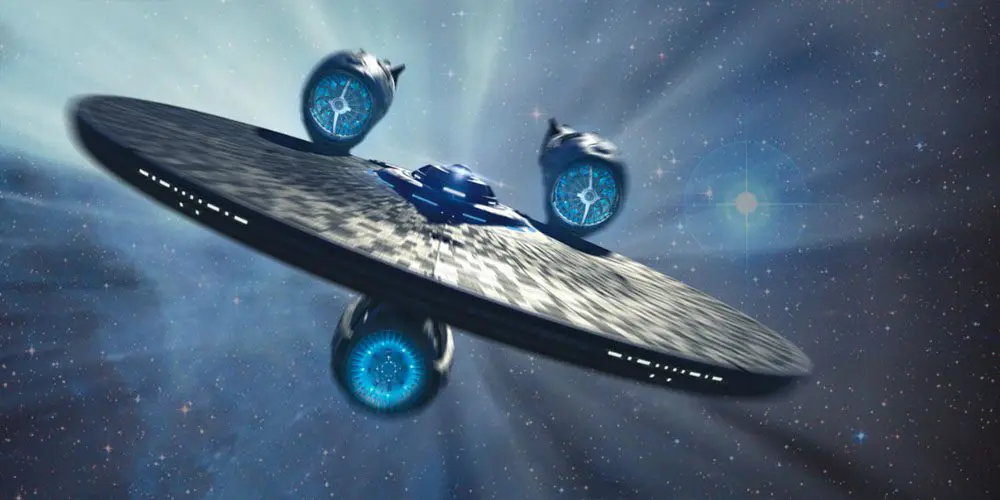
The narrative in Beyond is probably the weakest so far of the three films. That’s not to say the film is not good, but it is not as rich in layers as the previous. The start of this film is so fast-paced, disastrous and shocking that after the first act you relax into your seat because nothing feels as perilous after that. I did at times feel that because it was paying homage to the anniversary of Star Trek that it diverted to that aspect on too many occasions and unfortunately the warming nostalgia has already worn off; the first two films brought that into play. Yes, the scenes that displayed the historical material from previous Star Treks did provide a smile, but the most important objective of this film was to carry the momentum from the previous two. Right at the start when you hear James Kirk describe how the long-haul mission is starting to raise questions about the importance of the Federation, that’s the narrative that I thought I was receiving, but as soon as the aggressive enemy gets involved that narrative detail is gone.
My views on the narrative will be perceived that I do not believe the film is good. No, the film is good and it provides a healthy continuation from the previous two. The original cast looks very natural in each other’s presence and it feels like you are witnessing a family journeying through space. James Kirk is a mature captain with a more established and trustworthy relationship with Spock. You can expect the same from Doctor ‘Bones’ McCoy who provides laugh-out-loud moments and Montgomery ‘Scotty’ Scott still makes you chuckle with his flamboyant way of approaching any situation. The performances, you could argue, are much improved all round in this instalment, but it is backed by a weak story which does not help matters. The enemy in Into Darkness was such an interesting opposition; they tested the ideology of the Federation and what they stand for, where as in Beyond, you really do not know why the enemy is fuming so much until the end, and even then it is too late to care.
Director Justin Lin has done a brilliant effort to take on this universe and has put his own stamp on Star Trek, but I must question if changing director is a progressive ploy. This is not a contradiction but I feel J.J. Abrams had a certain style of promoting this story which is different to how Justin captures it. It could just be that because it was the third film after two highly acclaimed films that whoever took this one had a hard challenge to overcome.
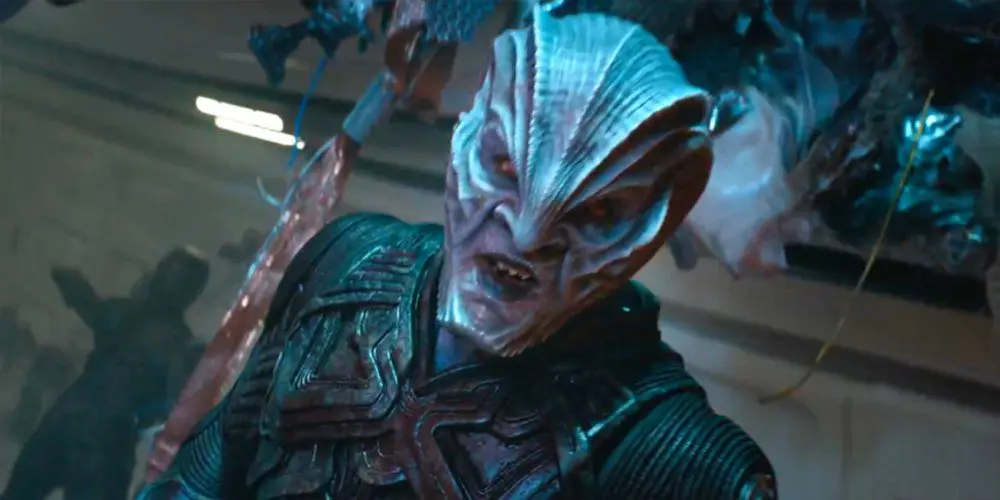
The special effects have not really changed at all and they are still as impactful from the launch of the new series. In fact, in the first act the special effects are probably the most spectacular and manage to add to the emotions that come.
The most significant question to pose – did Beyond managed to tackle the sexism problems that the previous films had? It was obvious in the first two that there was a real lack of importance or impact from the female characters that star in the film. James Kirk was obsessively a womaniser at every chance he could get, and it was in-your-face male-orientated. This film makes an ethical step forward in tackling the issue. Firstly, James Kirk does not seem to be a womaniser at all, and in fact he has taken a whole new personality change to his attitudes towards women. Intentional, or is it because his character has matured? Secondly, the introduction of new alien female Jaylah performed by Sofia Boutella is the real symbol of their progress. Jaylah plays the first female role in this Star Trek series where she does not need any male support in order to carry out her role as a character and in one pertinent scene makes that point to a male character. Is it addressed completely? Unfortunately, despite progress no; Lieutenant Uhura is still relationship-orientated, whilst Spock is still recognised for his work within the Federation. Progress is progress and slowly they are getting themselves out of this deep hole, which they may fully get out of in the fourth one.
And let’s not kid ourselves. There will be a fourth one.
Rest in peace Anton Yelchin.

